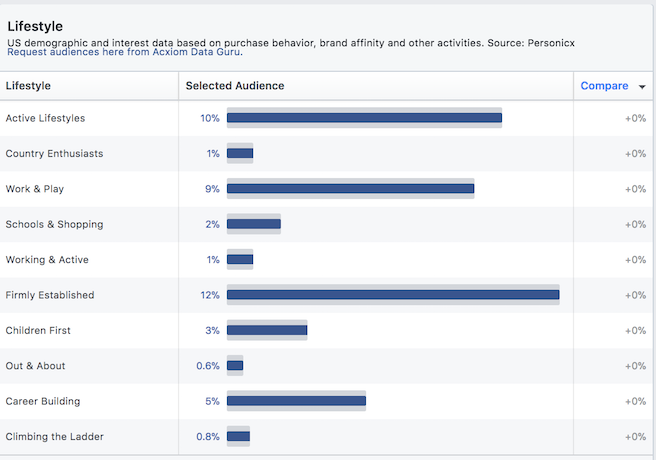4 Ways to Combat PPC Ad Fatigue

Yawn.
I love ads. I love pithy, punny, witty, tear-producing ads. Being served an ad at the right moment is magic. Whether it is something I know I need or if it is something I didn’t know I needed, if the ad is speaking my language, I am listening. But show me an ad I don’t want to see…
Rage ensues.
Ad blockers. As advertisers, we see those words and like a reflex our jaws tighten, shoulders tense, nostrils flare. The irrational part of our brain sees those words and panics, telling us “You’re done for! No one wants to see your ads!”. But hopefully, the logical voice in your brain prevails. It is the logical part that says, “The people who are using ad blockers are probably not people you want to target anyway.” But don’t get too cocky. Serving your ads all the time to all the people is going to get you blocked faster than you can say “Hey, Google…”
What is the right balance then? How do we hit the right person at the right times without making the person feel ad-attacked? This blog will talk about my top four strategies to negate ad fatigue and keep your audience receptive.
Put a cap on it
Frequency capping is one of those settings that is there and is important, but often times we are assigning an arbitrary number to it and calling it a day.
Story time! Every night before turning in, I play solitaire on my phone (save your judgment of my using screens before bed and blue light and all of that, I have enough guilt over it already). I play until I win a hand. In between games, I am served an ad. For a good long while, I was served the same dumb ads for some knock-off Game of Thrones-type strategy game. I ignored them. No big deal. But then I happened to do some shopping on Shutterfly one weekend. Now, every single ad I see is of items I viewed on Shutterfly. “Great!”, you might be thinking. “They found the proper audience!”
But here is the thing: I was a loyal Shutterfly customer to start. I will purchase from Shutterfly again. But sometimes, it takes me a while to win a hand of solitaire, and I am given ad after ad after ad of products from Shutterfly and I am over it. And I am really good at holding a grudge.

Same boring ads served in short period of time.
What could Shutterfly have done in this situation? Adjust the frequency cap! While there is no “magic” catch-all number, according to a Facebook study, There was substantial benefit of a higher frequency cap for purchase intent, with a frequency cap of 2 per week capturing 95% of the total potential brand lift.”
Moral of the story: be gentle with your ads. Shoving them in someone’s face is not polite.
Give me one good reason
Remarketing lists are the best way to gain insight into your audience behavior. Build out some lists in Google or Bing or Analytics and all of the sudden you have visibility to how they interact with your site. Use this information! Serving remarketing ads in bulk to anyone who tiptoed on your site might work for a while, but eventually, you are just floating ads to people who may or may not be interested.
You know the famous scene in Jerry Maguire? The one where after Jerry is gone for a time, he shows up at Dorothy’s and he gives his big speech? And Dorothy’s all “You had me at hello”?
THAT is like good remarketing.
Someone visits your site. Maybe they browse. Maybe they mark a few items as “favorites”. Maybe they put some things in their cart. Then they leave. Don’t call them “cart abandoners”. Maybe they just need time to think things through. Don’t chase after them like a dog. Instead, give them a little space. Then, show up, and say, “Hello, I came back for you.”
So here is what you need to do:
- Make sure you are building out all the different types of lists you can think of. Use Remarketing Gladiators: AdWords vs Analytics Lists Dissected, a great article by Carrie Albright as a guide.
- Just observe things for a while.
- Create a remarketing strategy based on your high-impact lists
To whom do you wish to speak?
This tip piggybacks off of remarketing strategy. Know your audience and know them well. You will start to get an idea of your audience through data you get back from remarketing lists. Beyond that, Facebook does an excellent job building out personas called “Lifestyles”.

While these are fun to read through, I highly recommend building out your own personas for your brand, rather than trying to fit Facebook’s descriptions to your brand. Use market research if you have it. Visualize your ideal customers. If your ideal customer is a female, aged 25-34 and you look at your analytics demographic data and see that males, aged 18-23 are doing the most interaction with your brand, you may want to rethink your strategy.
My point is, your ideal and the reality might be two different things. So make sure you are connecting the dots and your product-audience-message are aligned. Doing this makes writing targeted ads that much easier. Which leads me to my final tip.
Get creative
I mentioned how I love good ads. When shopping for my husband’s birthday gift last year, I placed the TRX Home System in my cart and then started browsing other sites for reviews, better prices, etc. A day or so later, I was served an ad on Facebook with a message like, “Fitness equipment does you no good sitting in a cart. Finish your shopping and get free shipping.” BOOM. Sold. Done.
Give someone a reason to return. What problem will your product or service solve? Is price the pain point? Can you offer a coupon? It is really easy to rewrite copy and say the exact same thing. No fun. Serving a generic ad with slightly different copy is likely to be ignored.
So here are my top 3 tips for avoiding ad fatigue with good copy:
- Use ad customizers. I’m just now starting to take full advantage of these. It is a no-brainer! Let people know you are paying attention and craft an ad that makes sense to them at that moment.
- Address pain points. Do you have a high-price item? How can you demonstrate the benefits outweighing the cost?
- Give ‘em FOMO. I’m not talking about “Hurry! These deals won’t last long!” copy. With each passing day, what is someone missing out on? Maybe Shutterfly should have told me that my babies are growing up fast and my phone storage is getting full so I better get those memories on a new set of placements. You get the idea.
Ad Innovation
Many big brands set out to make the ultimate ad–one that reaches a huge audience, tugs at the heartstrings, breaks barriers, etc. And many brands fail. Being innovative with ads doesn’t mean trying ALL THE THINGS ALL AT ONCE to get someone to convert. We are all fighting for “screen time” with our audiences. Show your audience that you not only respect their time but you are paying attention by being hyper-relevant and have a light touch.



